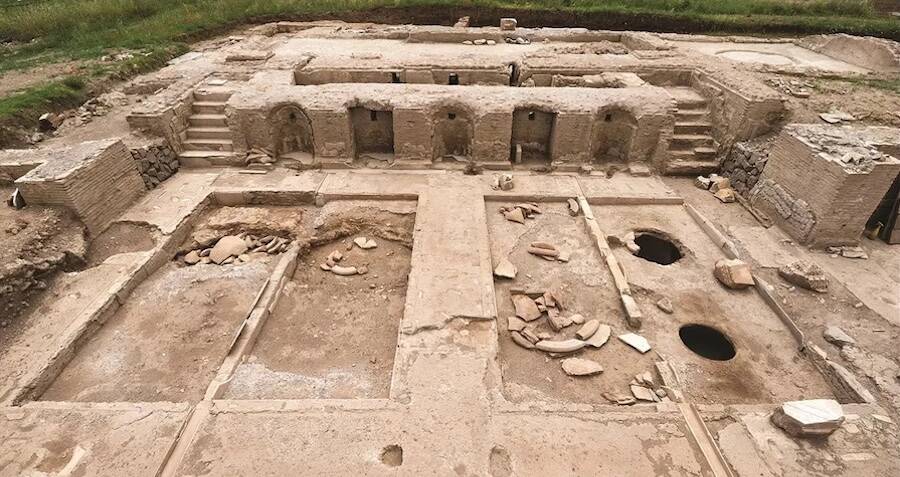
"Intelligence is not a science, it's an art. It's the art of understanding and anticipating the unknown."
Intelligence Fun Fact:
Do you know the difference between intelligence and information? While both terms may seem interchangeable, they have distinct meanings when it comes to intelligence analysis.
Information refers to raw data, facts, or figures that are collected through various sources such as news reports, social media, and official documents. Intelligence, on the other hand, involves the analysis and interpretation of that information to produce insights and conclusions that can inform decision-making.
For example, if a news report says that a certain country is increasing its military spending, that's information. But intelligence analysis would involve examining other factors such as the country's strategic objectives, historical patterns of behavior, and relationships with other countries to determine what this increase in military spending might mean for regional stability or global security.
So, in short, while information is necessary for intelligence analysis, it's the interpretation and analysis of that information that produces valuable insights and actionable intelligence.
Assessing the Ongoing Conflict in Ukraine: Russian Invasion, Ukrainian Counteroffensive, and Seasonal Challenges

It has been over a year since Russia invaded Ukraine, and despite several miscalculations, the conflict shows no signs of abating. The Russian military made a significant error in judgment by attempting to overtake the capital Kyiv during the early stages of the fighting. However, Ukraine has been successful in countering Russia's moves. This was seen in September 2022, when they used public reporting of a planned offensive against Russia to plan and carry out a covert counteroffensive in a separate location. Recently, fighting has diminished due to the lack of maneuverability in the late winter and early spring, where melting snow leads to muddied ground. Our report will provide a synopsis of the latest developments and offer insights into the potential implications of these events.
Analysts believe that Ukraine's upcoming counter-offensive will involve a concentrated "big bang" attack to disrupt the ongoing war with Russia. While the exact date of the attack is unknown, it is expected to happen soon. The attack could take place in a number of Russian strongholds with the goal of taking back Crimea.
Ukraine Counteroffensive
New information from the Institute for the Study of War reveals that the Ukrainian military has set up positions on the eastern side of the Dnipro River near Kherson City. This move could be the first step towards trying to dislodge Russian forces from positions they are using to shell and shoot at Kherson. The report also suggests that the Ukrainian military forays across the river could mark the first tentative steps toward launching a long-awaited spring offensive. The Ukrainian forces have established stable supply lines to their positions and regularly conduct sorties in the area. The reported positions were in marshy areas of islets and tributaries near the settlements of Oleshky and Dachi--which are still held by Russia. Ukraine has received shipments of Western tanks and other arms over the winter, and its forces have received training inside and outside the country on how to use them. NATO's secretary general Jens Stoltenberg expressed confidence that Ukraine was well-prepared to retake more of its territory in the next offensive.
Who Benefits from a Pause?
The recent lull in fighting between Russian and Ukrainian forces in the eastern part of Ukraine has raised questions about what both sides are planning next. While the slowdown in violence has brought some respite to civilians caught in the crossfire, it is important to consider how this pause in the conflict could benefit each side and how it could be used strategically.
Russia:
For Russia, the pause in fighting provides an opportunity to regroup and reorganize their forces, especially in the wake of the setbacks they have experienced since the conflict began over a year ago. The Russian military has faced numerous challenges, from logistical issues to a lack of manpower, which has resulted in mounting casualties and increasing pressure on Moscow to find a way out of the conflict. With a pause in hostilities, Russia could use this time to address these challenges and come up with a new strategy for the next phase of the conflict. Moreover, a pause in fighting could also help Russia to bolster its international standing and deflect criticism from the international community--particularly from the West. The war in Ukraine has resulted in numerous sanctions and other economic measures against Russia, and a cessation of hostilities could offer an opportunity for Russia to push for a lifting of some of these measures.
However, Russia may also use the pause in the conflict to prepare for a potential counteroffensive against Ukraine. Reports indicate that Ukrainian forces have established positions on the eastern side of the Dnipro River, which could be a first step towards trying to dislodge Russian forces from their positions. Russia may use the pause in fighting to gather intelligence on Ukraine's plans and to prepare a counteroffensive that could potentially catch Ukrainian forces off guard.
Ukraine:
For Ukraine, the pause in fighting offers an opportunity to consolidate its gains and prepare for the next phase of the conflict. The Ukrainian military has already made significant gains in the past year. This includes liberating key cities and pushing Russian forces out of certain areas. However, the conflict has also taken a toll on the country, with thousands of soldiers and civilians killed and wounded. With a pause in hostilities, Ukraine could use this time to regroup, rearm, and continue its efforts to root out corruption and strengthen its military capabilities. The country has received shipments of Western tanks and other arms over the winter, and its forces have received training inside and outside the country on how to use them. Additionally, Ukraine has been drilling newly mobilized soldiers to bolster its ranks depleted by heavy casualties.
However, Ukraine must also be cautious during this pause in fighting, as Russia could be preparing a counteroffensive. Reports indicate that Ukrainian forces have established positions on the eastern side of the Dnipro River, which could be a prelude to launching a long-awaited spring offensive to reclaim more territory. Russia could use this pause to gather intelligence on Ukraine's plans and prepare a counteroffensive and potentially catching Ukrainian forces off guard.
Political Infighting:
The Wagner mercenary group, which has been fighting alongside Russian forces in Ukraine, is reportedly experiencing internal conflicts between its leader Yevgeny Prigozhin and Russian President Vladimir Putin. This could lead to potential setbacks for Russian forces in Ukraine. According to sources close to the situation, Prigozhin has been frustrated with Putin's handling of the conflict in Ukraine. In particular, he is bothered by Putin's reluctance to commit more resources to the war effort. Prigozhin, who has close ties to Putin, has been advocating for a more aggressive approach in Ukraine. This includes expanding the use of Wagner mercenaries and increasing military support for Russian-backed separatist forces. However, Putin has been hesitant to escalate the conflict further and is reportedly concerned about the potential for increased Western sanctions and the negative impact on Russia's economy.
This political infighting within the Russian leadership could have significant implications for the war in Ukraine. If Prigozhin gains more influence and is able to push for a more aggressive strategy, it could lead to an intensification of fighting and potentially a full-scale invasion of Ukraine. On the other hand, if Putin prevails and continues to prioritize a more cautious approach, it could lead to a stalemate in the conflict and even a pause in fighting. This could benefit Russia in several ways to include allowing it to focus on other priorities such as its economy and foreign policy objectives and avoiding further damage to its international reputation.
However, a pause in the war could also have negative consequences for Russia, particularly if Ukraine uses the time to regroup and launch a new offensive. Furthermore, it is unclear how long such a pause would last as tensions between Russia and Ukraine are unlikely to dissipate in the long term. Overall, the political infighting within the Russian leadership over the war in Ukraine is a critical development that could have significant implications for the conflict and the region as a whole. As the situation continues to unfold, it will be important to closely monitor any changes in strategy and potential impacts on the ground.

In conclusion, the ongoing conflict between Russia and Ukraine has entered a new phase. Ukraine has begun making strategic moves to retake territory. Russia is experiencing setbacks due to internal conflicts within the Wagner mercenary group and disagreements between its leader and President Putin.
Despite this, Russia still holds a significant portion of Ukrainian territory. Its defensive capabilities are well-established, making any attempt by Ukraine to retake these areas a difficult and bloody proposition. The recent pause in fighting could provide an opportunity for both sides to re-evaluate their strategies and assess the costs of continuing the conflict. However, the situation in Ukraine remains volatile, with the potential for renewed fighting at any moment. It is crucial for all governments to closely monitor the situation and provide accurate assessments of the military capabilities and intentions of both sides to prevent further escalation.
The implications of this conflict extend beyond Ukraine and have broader implications for international security. Russia's actions in Ukraine are part of a larger pattern of aggression towards neighboring countries. It challenges the established norms of international behavior. The conflict also highlights the dangers of the use of proxy forces in conflicts, which can lead to unpredictable outcomes and unintended consequences.
Interesting Articles from the Weekend

Stay safe out there



